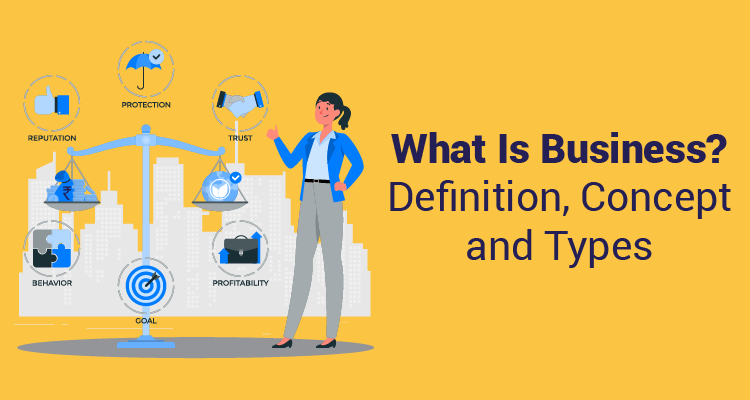Working Capital Management: Definition, Types, and Importance
Table of Contents
Every business needs a certain amount of money to run its everyday operations or to meet near-term obligations such as paying salary to its employees and making payments to vendors and suppliers. This is called working capital.
Technically, working capital is the excess of current assets over current liabilities. It takes into account a business entity’s cash on hand, including short-term deposits, as well as inventory.It also considers the money the business entity will receive from customers for products and services already provided and also the money it must pay to vendors, suppliers, lenders or tax authorities.
Types Of Working Capital
Permanent Working Capital:
It is the minimum amount required to carry out the regular operations of a firm without interruptions. For example, the cash to pay daily wages, regular vendors, power bills etc. It will also include some money for unforeseen circumstances.Sapna aapka. Business Loan Humara.
Apply NowRegular Working Capital:
It is that part of the permanent working capital that is needed for day-to-day operations. For example, salary and payments made for regular raw material purchase etc.Reserve Margin Working Capital:
Apart from the money needed for everyday operations, firms must also keep some amount of capital for unforeseen circumstances such as natural calamities, raw material getting stuck etc. So, the part of the permanent working capital that is kept for such purpose is called Reserve Margin Working Capital.Variable Working Capital:
Also called the Fluctuating Working Capital, it is usually temporary in nature and is needed for a particular time only. It is further divided into two parts.Seasonal Variable Working Capital:
The higher everyday expenses that may be needed during periods such as peak demand season. For example, an ice-cream maker will need more working capital during summers.Special Variable Working Capital:
It is that part of the Variable Working Capital that may be needed for a special campaign or for unforeseen circumstances.Gross Working Capital:
The total current assets of the business. This only shows part of the liquidity position of the company as it does not take into account current liabilities.Net Working Capital:
It is the excess of current assets over current liabilities. It shows the operational soundness of a business and its ability to fund day-to-day operations.Importance Of Working Capital Management
Any mismatch in working capital requirement can land a business entity in a soup and affect its everyday operations. A lack of adequate working capital means businesses won’t be able to pay salaries to staff or buy raw materials from suppliers. This will severely affect their ability to provide their products and services to their customers.It is important that business entities keep a track of the amount they will need for day-to-day operations, how much of that amount can they generate from regular sources and how much they will need to borrow to keep work steady.
It is best if all the working capital need can by generated in-house, but it may not be possible always. Hence, businesses open overdraft accounts to fill in the gap in working capital.Working capital is also essential to grow a business as the portion of surplus can be set aside to fund future growth, expansion and acquisition, etc.
Working Capital Management Solutions
Working capital management solutions enable businesses to efficiently manage their short-term assets and ensure smooth daily operations. These solutions are crucial for maintaining cash flow and avoiding unnecessary stress.
Some of the key factors within working capital management solutions include:
- Cash Flow Management - On time inflow and outflow of cash
- Accounts Receivable and Payable - Effectively manager collections and vendor payments
- Inventory Management - Optimizing well to avoid overstocking or shortages
- Short-term Financing Solutions - Quick access to funds
Working Capital Management Limitations
Working capital management comes with certain limitations that companies must be aware of. These include:
- Overdependence on Liquidity - Leads to missed opportunities with respect to long-term growth
- Predicting Challenges - Leads to a mismatch between cash flow projections and demand estimates
- Financing Costs - Short-term loans may come with higher interest rates
Inventory Risks - Piling up excess stock may lead to higher storage costs and the risk of redundancy
Conclusion
It is not uncommon for an entity to halt operations due to mismanagement of working capital. A viable business venture must have enough liquidity to manage daily expenses. Business entities should always keep an eye on the changes in the working capital need and be ready to fund it themselves or to borrow it.Most banks and non-banking finance companies offer working capital loans to help businesses tide over the difficult period. Working capital loans are especially beneficial for those businesses which have irregular cash flows or deal with seasonal demand and need extra money to plug the gap between receivables and payables.
Sapna aapka. Business Loan Humara.
Apply NowDisclaimer : The information in this blog is for general purposes only and may change without notice. It does not constitute legal, tax, or financial advice. Readers should seek professional guidance and make decisions at their own discretion. IIFL Finance is not liable for any reliance on this content. Read more




